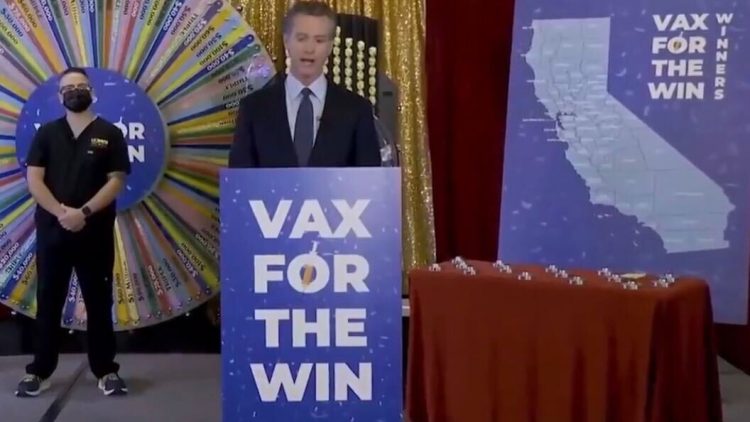New study finds vaccine lotteries did not work, wasting nearly $90 million

Multiple states initiated some form of vaccine lottery to motivate people to take the Covid-19 vaccine, but a new study suggests that they failed to increase vaccination rates.
“There’s a lot of hype around these programs, and we can’t find any evidence that they helped,” said research co-author Andrew Friedson.
RELATED: Three Nordic countries pull Moderna vaccine off the market for young people
Governor Mike DeWine of Ohio initiated the first $1 million lottery for vaccinated Ohio residents, and several other states, including New York and Maryland, followed suit. In total, states spent $89 million on various forms of vaccine lottery.
Right after the lotteries were announced, there was a jump in vaccine numbers in most states, but the trend didn’t hold, and had no effect on the overall vaccination percentage, as compared to states that did not have lotteries.
Researchers arrived at that conclusion after analyzing vaccination data from April through July 2021. They chose this time slot because the vaccines were widely available and 19 states were running some form of vaccine lottery during that period. Upon examining the lottery announcements and comparing them with vaccination rates, they found that the effect was “statistically indistinguishable from zero.”
RELATED: NY Governor slammed for saying vaccines are ‘from God,’ asking for ‘apostles’
When calculating the amount of money spent in total on vaccine lotteries, the study, published in JAMA Health Forum, looked at data provided by six different state health departments. Business Insider estimated the state spending for eleven states and combined with the study data, their official estimate stands at $89.4 million, although they acknowledge that number is probably a lowball.
Two states that held lotteries – Massachusetts and Maine – did not provide data. North Carolina’s tab is likely underestimated since they reported that they used coronavirus relief money to fund much of their lottery, and the study did not take into account privately funded lotteries like the one that the Kroger grocery chain ran.
“There’s an opportunity cost to spending money. Every dollar that you’re spending on a lottery, you could have been spending on something else,” Friedson said, adding that the lotteries “were not a great use of funds.”
Friedson acknowledged that the lottery was an experiment and maintained that you don’t know what works until you try.
Nichole Lighthall, an assistant psychology professor at the University of Central Florida, offered a different idea back in May that could prove to be a more effective option.
“People like to gamble, but people love to get money for sure even more,” Lighthall said. She proposed that a $100 bond as a reward for getting vaccinated may be a better motivator than the long-shot lotteries.
RELATED: NBA player not allowed to eat in same room with his teammates, per vaccine protocol
Friedson is unconvinced, however.
“If you buy into the idea that vaccines are dangerous – and I can’t stress enough that that this idea is wrong – but if you believe that there’s something sinister going on with this vaccine, it’s unlikely that a payment is going to convince you, regardless of how big it is,” Friedson said.